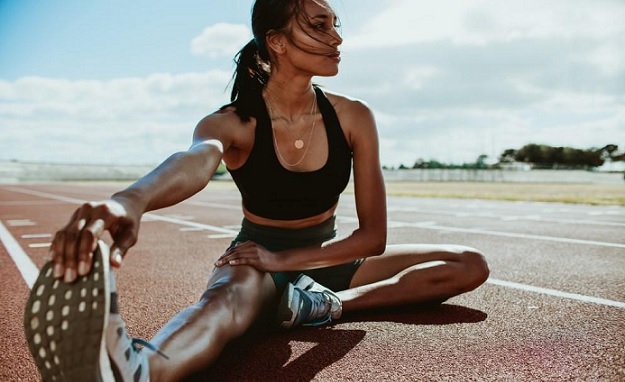Physical training, diet and mental preparation are essential in sports. One important component frequently disregarded is skin health. Maintaining skin health is crucial for athletes who exercise hard and are exposed to environmental factors. Skin is the body’s initial protection against infections and injuries that might impede sports performance. Athletes must understand skin health and take steps to maintain it to succeed.
Skin Is The Body’s First Line Of Defense
Skin health is crucial for athletes as the body’s first defense against viruses and environmental elements. Athletes work hard and expose their skin to sweat friction and sun. Skin integrity protects the body against infections, injuries and other factors that might hamper sports performance.
When the skin is damaged by cuts, abrasions , eczema or dermatitis athletes are more vulnerable to bacterial fungal and viral infections. These illnesses threaten athletes’ health and cause downtime from training and competition affecting their performance and objectives. Athletes must maintain ideal skin health to avoid concerns and perform at their best.
Impact Of Skin Conditions On Athletic Performance
Skin issues may affect athletes’ physical and mental performance. Athlete foot acne mechanica and friction blisters make movement difficult and hurt reducing performance on the field or court. In addition skin issues may lower an athlete’s self esteem and confidence affecting their mental concentration and performance.
Skin disorders may cause physical pain and require medical care delaying an athlete’s training and competition schedule. Severe acne may need dermatological treatment while chronic disorders like psoriasis or eczema may require continuing care to avoid flare ups and problems. By emphasizing skin health athletes may reduce the effect of such issues on their performance and well being.
Strategies For Maintaining Optimal Skin Health
Athletes should combine particular training and everyday routine tactics to preserve skin health. Regular showers with mild soap and thoroughly cleaning sweaty clothes and gear help prevent bacterial and fungal diseases. Moisture wicking garments and correct footwear decrease friction and lessen blisters and other friction related ailments.
Dehydration may cause skin dryness, irritation and damage. Therefore athletes should emphasize water. Relying on sunscreen before outdoor activities as required may also prevent sunburn and long term skin damage including premature aging and skin cancer.
Nutrition And Skin Health

Nutrition is critical to athlete skin health. A vitamin rich diet minerals and antioxidants help strengthen and restore skin. Vitamin C rich meals like citrus fruits and berries boost collagen formation improving skin suppleness and wound healing. The omega 3 fatty acids in salmon and walnuts assist athletes with continual physical stress, maintain skin moisture and prevent inflammation. Nuts seeds and leafy greens include antioxidants like vitamin E defending the skin from free radical harm from vigorous exercise. Athletes should drink lots of water and electrolytes to maintain moisture and eliminate toxins via sweat for cleaner healthier skin.
Preventing And Managing Skin Infections
To perform well athletes must prevent and treat skin infections. Regular handwashing and equipment disinfection reduce the spread of staphylococcus aureus and tinea corporis. To prevent cross contamination athletes should not share towels or razors. Antiseptic treatments and sterile dressings avoid infection and speed wound healing for minor cuts and abrasions. Dermatological screening may be needed for athletes with recurring skin infections to detect risk factors such as reduced skin barrier function or immunological deficiencies. Preventive measures and appropriate medical treatment help athletes maintain their skin health and competitive edge.
Mental Health And Skin Wellness
Psychological health and skin health are closely related to athletes. Stress worry and performance pressure may worsen acne and eczema. Mindfulness meditation, deep breathing and relaxation help reduce the detrimental effects of psychological pressures on skin health. Positive body image and self care improve well being skin vibrancy and resilience.
Self compassion and assistance from coaches, sports psychologists and mental health specialists may help athletes overcome emotional pressures that may cause skin concerns. Integrating physical cognitive and emotional wellness helps players succeed on and off the field promoting long term skin health and athletic performance.
Skin Protection During Outdoor Activities
Athletes risk sunburn, windburn and other environmental skin damage while exercising outside. Skin protection during outdoor training and sports is crucial for long term health and performance. Before outdoor activities use broad spectrum sunscreen with an SPF of 30 or greater to protect the skin from UV radiation and lessen the risk of sunburn, sun related premature aging and skin cancer. Hats sunglasses and lightweight long sleeved clothes also protect against UV radiation and environmental toxins.
Athletes should seek shade and organize outdoor activities during off peak hours to avoid sunburn. Moisturize exposed skin to retain hydration and strengthen the skin barrier avoiding moisture loss and irritation. Athletes may enjoy outdoor activities for years by emphasizing skin protection.
Tailored Skincare Regimens For Athletes
To maintain skin health throughout intense training and performance athletes must create a customized skincare routine. A mild pH balanced cleanser eliminates sweat debris and pollutants without depleting vital oils protecting the skin moisture barrier. Using non abrasive scrubs or chemical exfoliants helps remove dead skin cells and unclog pores avoiding acne and smoothing the complexion.
Athletes with acne or eczema should see a dermatologist for customized treatment strategies including prescription drugs or specialized skincare products. Regularly moisturizing with lightweight non comedogenic moisturizers maintains moisture balance and a healthy shine without clogging pores.
Finally, frequent broad spectrum sunscreen reduces UV damage and photoaging for long term skin health especially on overcast days. Customizing skincare regimens to their requirements helps athletes treat skin concerns and maintain a bright beautiful complexion despite rigorous training.
Recovery And Skin Regeneration Techniques
Post training recovery and skin regeneration treatments speed up healing and build skin resilience for athletes. Gentle stretching foam rolling and contrast water treatment increase circulation and decrease inflammation helping muscles recover and reducing friction and sweat induced skin irritation. Aloe vera chamomile and calendula topical therapies soothe sensitive skin and boost natural healing restoring comfort and vigor.
Cryotherapy therapies like cold showers and ice baths minimize post workout inflammation and shrink pores for smoother, more resilient skin. Sleeping enough helps the body repair and rejuvenate skin cells providing a healthy complexion and general well being.
Adding these healing and skin regeneration strategies to training programs helps athletes maintain skin health and vitality for maximum performance and longevity.
Addressing Common Skin Concerns
Athletes typically need focused skin treatments to stay healthy and perform well. Blisters and chafing from repeated action and poor friction reducing methods are ordinary. Using petroleum jelly or anti friction balms on sensitive regions during training and competition reduces friction and skin damage. Sportspeople may also develop exercise induced acne which causes blocked pores and irritation from sweat and grime.
Gentle exfoliation and oil free salicylic acid or benzoyl peroxide products may reduce acne and cleanse skin. Hypoallergenic clothes and cosmetics without harsh chemicals and scents may also help athletes with sensitive skin. Addressing common skin issues early may help athletes concentrate on their sports objectives without interruption.
Environmental Factors And Skin Health
Pollutant allergies and severe weather affect athletes’ skin health. Air pollution mainly particulate matter and ozone may worsen acne and eczema by causing oxidative stress and inflammation.
Urban athletes should wash their skin after outdoor exercises to eliminate particles of pollution and reduce their adverse effects.
Conclusion
Athletes must prioritize skin health to succeed. By following personalized skincare regimens, taking preventative steps and seeking expert advice athletes may protect their skin from external stresses, reduce the risk of infections and injuries and maximize performance.
Recognizing the interdependence of physical emotional and environmental elements in skin health helps athletes develop robust vivid complexions for athletic performance. As athletes address skin health and other training and preparation they may thrive on the field while preserving their health.
